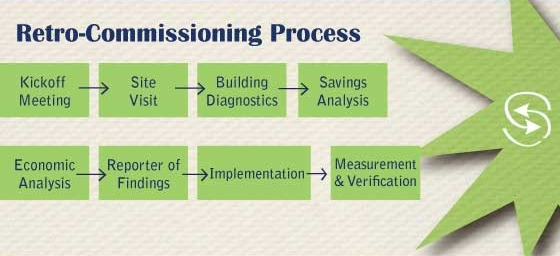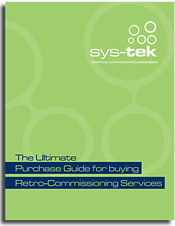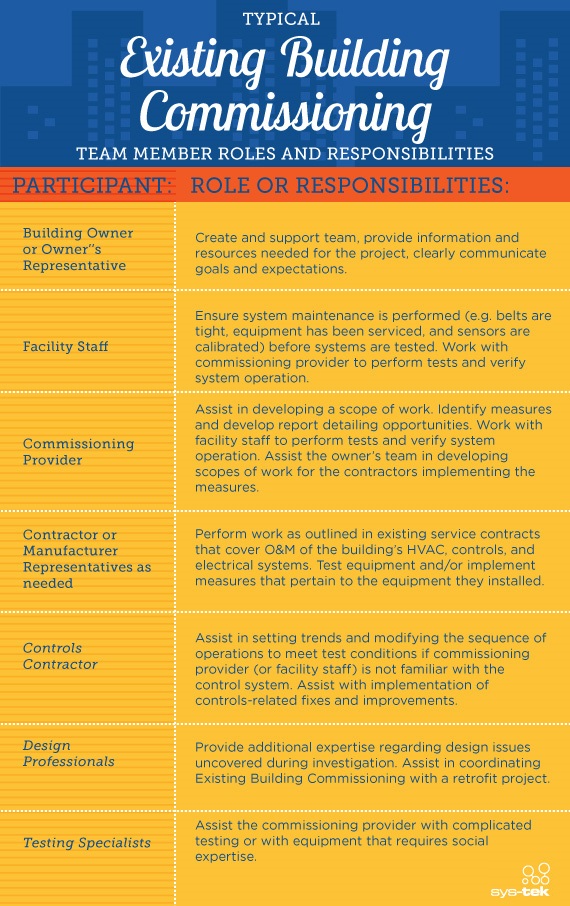The 3 realizations you’ll have during technical commissioning
Jan 30, 2014
 Technical commissioning isn’t simple by any stretch of the imagination. But beyond the countless ducts, fans and pipes buried in every facility, there’s a deluge of untapped data stirring around – technical commissioning exists to set it free. Read on for a few simple, succinct pieces of advice that are key to administering a successful technical commissioning endeavor: it’s far better you go in knowing exactly what’s coming during the duration of the assessment rather than to be caught off guard down the road.
Technical commissioning isn’t simple by any stretch of the imagination. But beyond the countless ducts, fans and pipes buried in every facility, there’s a deluge of untapped data stirring around – technical commissioning exists to set it free. Read on for a few simple, succinct pieces of advice that are key to administering a successful technical commissioning endeavor: it’s far better you go in knowing exactly what’s coming during the duration of the assessment rather than to be caught off guard down the road.
1. Technical commissioning involves patience.
In any technical commissioning undertaking, there will be an outsider looking in, prodding and probing the underbelly of your facility. It is the expert’s job to do so, and you are likely paying him or her to be thorough and professional. Don’t try to conceal or manipulate any meter, readout or data to mask what your building is trying to say – it will only come back to bite you. You may also have the urge to direct the official around the facility or lay out some sort of tour in an effort to make his or her job easier. Don’t. The expert has a refined checklist of activities, and the last thing you want to do is end up with inconclusive data because you wanted to be involved. The technical commissioning expert is on your side and is only there to help you.
2. It’s a starting point, not a conclusive report.
Technical commissioning is not a one-and-done act. Don’t romanticize your first-time technical commissioning data like an old vacation photo. It’s more useful than that. More dynamic. The data gleaned during the premier study is a tool for the future, a set of benchmarks that should make up one edge of a longitudinal graph that should continue to extend for the entire lifecycle of the building. And because of this…
3. Its cost should be considered an investment for the future.
Nothing is stagnant; BAS technology will roll on and continue to update. Better, faster, more efficient building automation systems will debut, and when they do, you need to be able to size them up and see if they would make a good addition or replacement for existing devices or infrastructure. There is no be-all, end-all “best” solution any more there is a “best” model of car or “best” pair of glasses. The upgrades have to dovetail into your existing system, and to do that they need a steady foundation of data reaching as far back as possible.
For more information on how technical commissioning can help your facility become more energy efficient, contact sys-tek.
Other posts you might be interested in:
- The Importance of Owner Involvement in Retro-Commissioning
- The Commissioning and Retro-Commissioning Process
- Retro-Commissioning for Larger Buildings

Retrocommissioning Purchase Guide
Our Purchase Guide to Retro-Commissioning will tell you everything you need to know about finding the right retro-commissioning agent for your facility.







